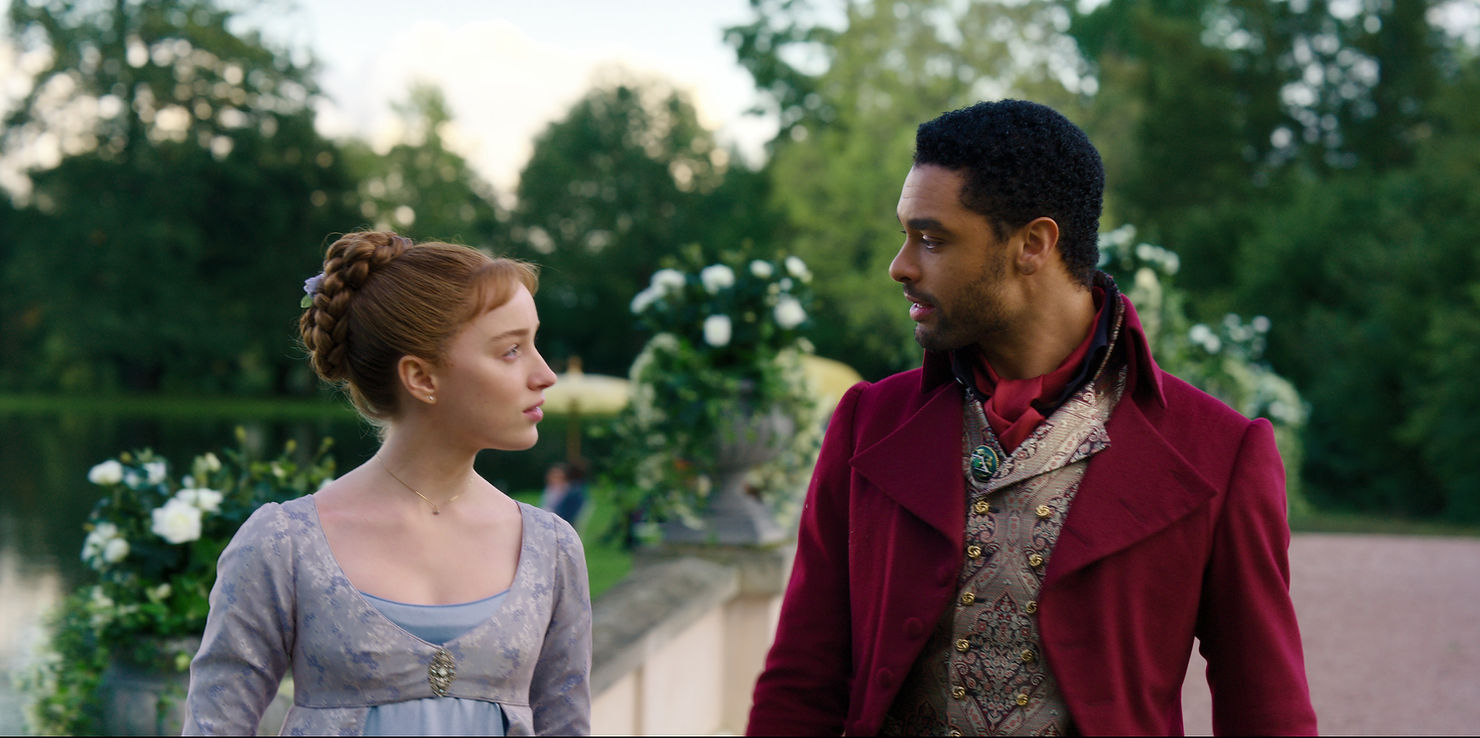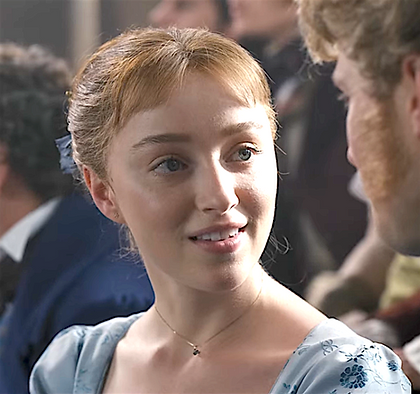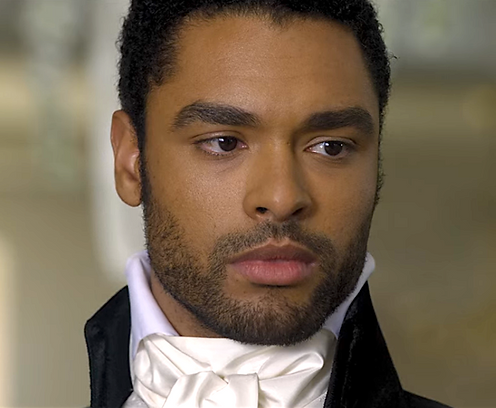Realistic Romance: Daphne and Simon from Bridgerton (Season 1)
December 1, 2021
Welcome to the Realistic Romance series, where I analyze and assess popular relationships in television and film. In each post we will explore an on-screen couples and look at relevant psychological concepts to better understand the quality of their relationship, and determine if these partnerships are setting realistic expectations for a good relationship.
Spoiler Alert!
For each of these posts I will be discussing examples and plots, if you haven’t seen the movie or show, you may want to watch it first and read this after.

Buckle up readers, because I’m about to get into it. The relationship we’re about to unpack involves some incredibly problematic and upsetting dynamics.
I know, I know, the show is just for fun. It’s set in a different time period when “gender equality” was not a phrase people knew let alone cared about. It’s not supposed to be some educational show on how to navigate romance.
But still. If I see a relationship on the big screen being portrayed as romantic or aspirational (especially to young people), it had better stand up to a clinical assessment of its health, and this one does not.
Especially with season 2 of Bridgerton on the way, I feel it necessary to set the story straight on Daphne and Simon before Antony and his love interest Kate become the show’s focus.
THE PARTNERS
Daphne Bridgerton

Dear, sweet, naive Daphne (played by Phoebe Harriet Dynevor). She is the eldest daughter of a well-to-do family who enters society flawlessly (per the queen’s assessment) and is desperately ready to be married. She feels a sense of duty and purpose in this mission, and nothing will stop her from finding her love match, not even her incompetent brother Antony. Daphne falls into a bad situation because of Antony and must climb her way back to being a desirable match for a handsome suitor, which is where Simon comes in.
Daphne was raised like most upper crust women in the Regency era in England- she is taught how to be a demure, proper lady, but is given no actual real life information. While she may have been prepared for courtship and securing a husband, she is painfully ill-equipped to know or navigate a close romantic relationship. At least Daphne stands up for herself when she realizes she has been wronged, and while she plays the game to get her husband, she also quietly pushes boundaries to advocate for what she deserves.
Simon Basset

Simon is the Duke of Hastings (played by Regé-Jean Page), a title he did not wish to inherit from his withholding and abusive father but nonetheless must bear following his father’s demise. They had such an awful relationship that Simon makes a vow to his dying father that he will never have children, ensuring that his father’s name and legacy dies with him. Simon has not participated in London society for quite some time, choosing to satisfy his wanderlust with adventures, brief trysts, and travel.
Simon avoids romantics commitments that would require him to face his trauma. A “rake through and through,” he is skilled at charming women for brief dalliances but is careful to remain unattached and unattainable. He reluctantly participates in the London season at the request (demand) of Lady Danbury, the shrewd and no-nonsense mother figure in his life. As he avoids the eager mothers’ attempts to have their daughters catch his eye he has a fateful run in with Daphne, and so their story begins.
THE CONCEPT
Allow me to introduce the concept of attachment styles. There is a lot of information about attachment so we’re going to barely scratch the surface here, but it’s a relevant framework for every relationship and a very helpful way of understanding the rollercoaster of this relationship in particular.
Attachment Styles Overview
Attachment is our connection to other humans. Our earliest and most critical relationship, the one with our caregivers when we are infants, shapes what kind of attachment we develop. In the briefest of histories just so you know the two important names associated with this theory- psychologist John Bowlby, the founder of attachment theory, began the work of defining and explaining attachment in the 1950s. Years later, his colleague Mary Ainsworth continued this work by researching how to identify attachment styles between infants and their mothers.
Essentially, the nature of our relationship with our caregivers shapes how we interact with people in intimate relationships. Can we trust people to take care of us? Will they listen and make amends if they hurt us? Or will they dismiss our feelings? Can we count on them to communicate their true feelings, or will they withdraw or lie? Will they consistently love us, even if we made a mistake, or will their love be conditional?
Avoidant Attachment
There are four attachment styles: secure, ambivalent, avoidant, and disorganized. We’re going to look at avoidant attachment. In this attachment style, children do not seek comfort from their parents. They have experienced that their parents do not consistently provide them with what they need, be it resources, attention, affection, or support. These children learn to deny their own needs and feelings, just as their parents did.
Adults with an avoidant attachment style find it very challenging to maintain close, intimate relationships. They may avoid getting close to anyone, in fact. They do not like emotional vulnerability in themselves or others, feeling that this is a sure way to get hurt and should be avoided at all costs. They highly value their independence and freedom from attachment, choosing to quickly leave any relationships that seem to be getting complicated so that they can stay in control.
KEY MOMENTS
The Sudden Withdrawal Outside the Tea House
While enjoying the ruse of pretending to be courting, Simon is put in his place by Lady Danbury who scolds him for leading Daphne on if he is not actually going to propose, especially since Prince Friedrich has clearly indicated interest in her. She makes an excellent point, even though she doesn’t know the full extent of this fake courtship, and Simon realizes that he must end things with Daphne.
They meet up for tea or a stroll, and Simon is suddenly cold. He holds himself stiffly and looks away from Daphne as he speaks, telling her that because of the Prince’s attentions focused on her, they should no longer continue their ruse. Daphne is shocked and hurt, by the ending of their friendships but even more so by Simon’s cruel delivery.
Simon was doing the right thing, here. I’m not taking any issue with his decision. I’m taking issue with how he communicated his decision. He doesn’t know how to have a difficult conversation with someone close to him without resorting to the same tactics that his father used on him- shutting down, withdrawing, and dismissing.
He cannot tolerate the challenge of an honest discussion- about his inability to honor his feelings for her because of the vow he made against children, his sadness about needing to let her go, her sadness about not getting the love match she so desired, the pain of getting close only to have to separate, and her anger about his refusal to consider a future together. He side steps emotional vulnerability by skipping this conversation.
Choosing Death over Discussion
Simon continues to see Daphne at every event, it seems, and he continues to pine for her. Daphne gets closer to Prince Friedrich, who is very sweet and sincere, but does not have the same chemistry as the Duke. Simon impulsively kisses Daphne in the gardens one evening, after she tries to get space from the ball in order to center herself and prepare for the impending marriage proposal from the Prince.
This kiss appears very romantic and sensual, however, his impulsivity is her social demise. In doing this, he effectively renders her unweddable by anyone but him. And he knows this. He’s a highly educated man, he knew the consequences of his actions and went ahead anyway. To make it worse, when he is faced with the consequences of his own actions, he chooses a duel to the death instead of marrying the love of his life.
If this isn’t the quintessential example of avoidance attachment, I don’t know what it is. He would rather die than commit to a woman he loves. His fear of closeness is palpable. And to top it all off, he still won’t tell her the reason for his refusal, even as he thinks he is heading to his death in a few hours. Simon is incapable of exposing himself, emotionally speaking (he has no problem with the other kind), and maintains a wall between himself and any possible partners.
The Season’s Final Ball
To end the season, Daphne and Simon throw one last fete. After the guests have dispersed due to the sudden downpour, Daphne reveals that she understands why Simon does not want children after having read the letters he wrote to his father as a child. Finally, through her own investigation, she unearths his emotional vulnerability. Daphne is kind towards him, empathic, loving, and accepting. She validates his pain but asks him to see that there is a way forward, a happy future together, if he is willing.
Daphne’s acceptance of Simon, after looking through the window into his most raw and exposed childhood self, shows Simon that she is a safe person to be open with, after all. Although his automatic response is to withhold and avoid, this experience shows him that Daphne will not treat him like his father did. Instead, she cares for the young child who needed extra love and encouragement.
After this, Simon is able to trust her. He gives up his vow against children and embraces a full life with his partner. (To be clear, healing attachment wounds is not usually this simple or quick, but it can certainly be done.)
The Overall Assessment
I can’t give much of an endorsement for this relationship. The frustrating gender inequality of the time and resulting power dynamics make this relationship riddled with problems. Daphne has no leg to stand on for much of the time. She does her best to ask for her needs to be met and challenge the ridiculous norms of the time (anyone remember her refusing to marry the unbearable Nigel or her bravely breaking up a duel?).
Simon’s emotional volatility is concerning. He pulls Daphne close only to discard her, over and over again, which makes him a scary partner to have. His intense affection and need for physical closeness gives way to a sudden withdrawal of his attention or communication.
Overall, I give them a F, and here’s why. (Those of you who read my post on Tom and Shiv from Succession may be wondering why they got a higher score, so I’ll explain.) Simon engages in some abusive behaviors- he is demanding and unyielding, refuses to acknowledge or empathize with Daphne’s feelings, uses sex as a way to repair after being cold and withholding, stonewalls during conflict, and despite his proclamations otherwise, he only cares about himself. How he handles sexual intimacy is especially problematic. Shiv is a difficult person to be with but at least Tom has the option of leaving her, whereas Daphne is pretty much stuck, which makes this relationship considerably worse.
Simon suffered neglect and abuse as a child, and although this is a bigger topic than this post, it’s worth noting that it’s not uncommon for survivors to later become abusers. I think that’s exactly what we’re seeing with Simon. He turns into his father- only valuing his own wants and needs, refusing to consider or validate other people’s feelings, and completely withdrawing from a situation or relationship when he finds it too emotionally stressful.
Daphne manages to weather his storm, but no matter what fictional future they have, I’d bet this pattern would continue in their relationship. Simon could use therapy with a focus on healing attachment wounds and trauma work so that he can learn how to have a secure attachment in his romantic relationship.
Season 2 Predictions
I shudder to think what Bridgerton Season 2 will bring us given that Antony has not shown himself to be a particularly likable, considerate, intelligent, or kind person. His treatment of Selena was pretty wretched, and his newfound mission to find a bride by removing the inconvenience of love will not make him more appealing. Having not read the books, I only hope that Kate will set him straight. He needs someone to break through his insecurity-driven arrogance and frustrating self-focus, and that will be no easy task. We’re all rooting for you, Kate, so good luck.
Want More Like This?
If you have a favorite on-screen that you’d like to be a focus of this series, let me know! I’ll be writing on all couples, from the obviously healthy to the clearly destructive, and everything in between.
Leave a Reply Cancel reply
Dr. Isabelle Morley is a clinical psychologist offering virtual coaching, books, and resources to help ambitious couples strengthen their connection and navigate conflict with confidence.
Navigate
Connect
Elsewhere
©2025 Dr. Isabelle Morley